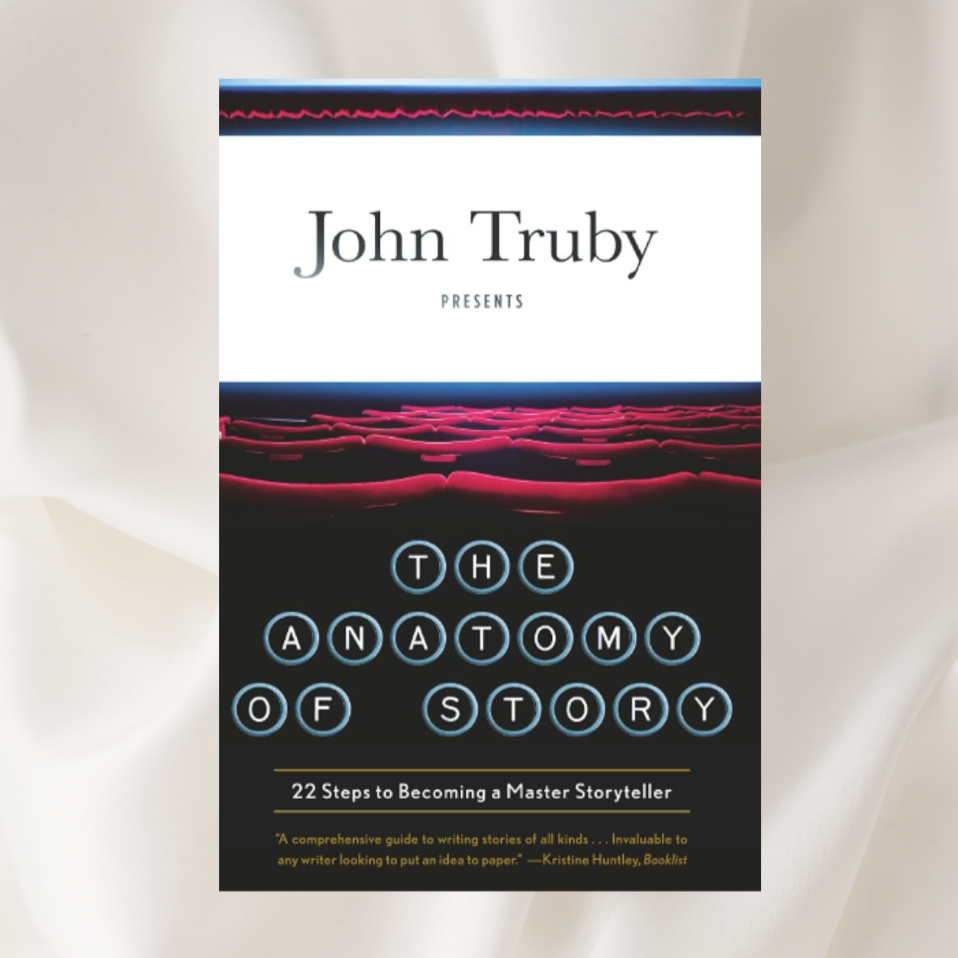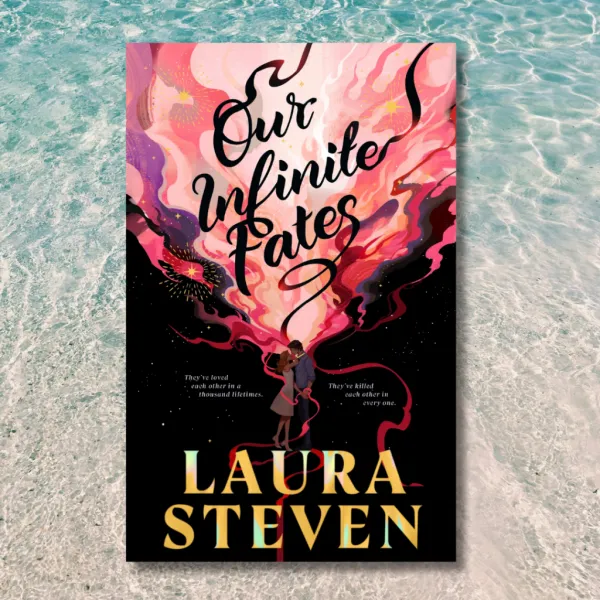Craft Book Review: The Anatomy of Story by John Truby
This month, I swapped soulmates for crafting better stories with Truby ✒️

Picture this in your mind: you, sitting nice and cosy with a steaming coffee, and your favourite notepad. That was exactly my setup when I sat down to study The Anatomy of Story by John Truby.
Don't get me wrong, I wasn't hooked from page 1 - this is a dense book and not an easy light read like Save the Cat! Writes a Novel by Jessica Brody was for me. Some reviewers have described his writing as narcissistic and 'my way is the only way', and yes I could see a bit of that, but I valued the information - however dense - he gave about the writing craft, and I enjoyed his writing exercises on story structure, character development, and more.
Why The Anatomy of Story Stands Out
Right away, Truby isn’t shy about being opinionated. In Chapter 1 he basically roasts old-school terms like rising action and climax, calling them “so broad and theoretical as to be almost meaningless”. He even bluntly labels the classic three-act model “hopelessly simplistic and… just plain wrong”. This will obviously rub people the wrong way, and for good reason, but considering I was struggling with the three-act structure as well, I loved this fresh honesty – and it's not bad for him to have his own opinion, even if he is a bit heavy-handed with it. Instead of a cookie-cutter formula, Truby offers his approach of a structure that stands on its own, however does take a bit of time to make sense of. He treats story as something organic, not mechanical. If you’re tired of buzzwordy advice, you’ll appreciate this book’s straightforward style.
Key Insights from The Anatomy of Story
Here are some of the quick notes I scribbled down while reading:
- Story as an Organism: Truby likens a great story to a living body, with subsystems like characters, plot, theme, etc., all working together. He calls character the heart of the story and theme its brain. It made me think differently of the story as a whole while planning, that every element of your story (plot beats, setting, dialogue) should feel interconnected, not random.
- Premise is the Seed: One of Truby’s mantras is that the premise (your core idea) is everything. He emphasises “what you choose to write about is far more important than any decision you make about how to write it”. Get your story idea strong first, and everything else will follow. If you get your core idea down now, you'll be able to spot plot mistakes or underwhelming ideas before you go through the gargantuan task of writing the story.
- Seven Key Steps: He breaks story structure into seven key beats:
Weakness/Need,
Desire,
Opponent,
Plan,
Battle,
Self-Revelation,
New Equilibrium.
Think of these as a flexible outline built right into your idea. This is not a cookie cutter story structure that you can just plug your work into, it's not that rigid. Truby's story structure is more like a roadmap that grows naturally from your characters. - Character Web: Characters aren’t solo stars; they live in a web of relationships. Truby points out: “To create great characters, think of all your characters as part of a web in which each helps define the others.”. By fleshing out friends, rivals, mentors, and side characters, each person in your story boosts everyone else’s depth. Every ally or enemy can highlight a trait of your hero.
- Moral Argument: Instead of preaching your theme, embed it in the story. Truby calls this the moral argument. In practice, the hero’s journey itself reveals the lesson. For example, you don’t need a bookish narrator to spell out “honesty is good” – show your hero learning that by choices and consequences.
- Organic Plot & Revelations: Finally, Truby is big on surprises done right. He stresses that the 22-step story structure he outlines is full of built-in revelations. He states that the quality of your plot “comes down to the quality of your revelations”. Basically, don’t just dump twists for shock – each new bit of info should flow naturally and deepen the story. Following his steps (from Inciting Event all the way to Final Moral Decision) will make your plot feel organic rather than forced.
Real-World Benefits
Even though Truby writes mostly for screenwriters, the advice translates perfectly to novels. If you’ve wondered how to write a novel that really works, you’ll find plenty of advice here. Just be warned it's a lot of information to wade through, and a lot of it can be confusing on the first read-through.
Takeaway bullets:
- Story craft made logical: Truby treats storytelling like engineering a living thing. He gives you a comprehensive system rather than guesswork.
- Practical creative writing tips: From nailing the premise to plotting with twists and turns, the book is full of checklists and examples.
- Fun, relatable tone: He’s witty and clear, not preachy however he writes in a way which made it feel like doing homework.
Conclusion
So, should you pick up The Anatomy of Story? This is going to depend on what kind of learner you are. This book is not a particularly enjoyable read, but it is an enlightening one, I'm sure most writers can get some tidbits of useful information through this book, so it would not be a waste. This book stands out on its own as a thorough, witty, slightly condescending guide to storytelling.
It's definitely given me a lot of insights about the deep-dive of story-telling, however the story structure is something I'm still trying to decode.
What about you? Have you read The Anatomy of Story (or do you have another favourite writing guide)? Drop a comment below - I’d love to hear your thoughts! And if you found this review helpful, consider subscribing for more creative writing tips!
Stuck with coming up with your premise? Check out this post How to Write a Novel Premise: Crafting Your Story's Core Idea to nail it.
Still in the brainstorming phase? Check out this post How I’m Brainstorming My Novel Idea (And What’s Actually Working) for some helpful advice!
See you next time!
✍️ Hop to it and keep writing! 🐸 - Krystal




